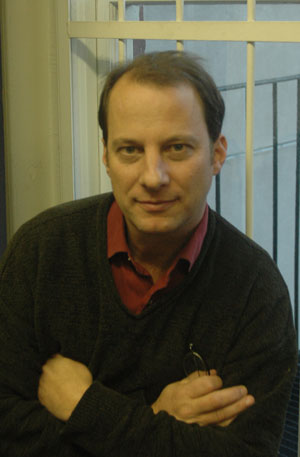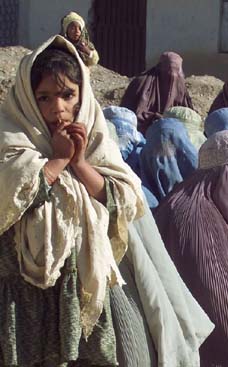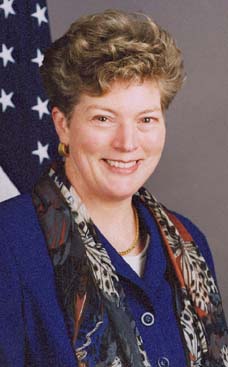
"Myat Min decided to pursue his passion for English literature at Rangoon University; he dreamed of a life immersed in ideas, “like walking through the forest in the dead of night.” But by 1996, the year he enrolled, the university had almost ceased to exist. To prevent students from gathering in protest, the government repeatedly closed the main campus and began busing undergraduates to makeshift campuses outside the capital. The semester dwindled to ten days in the classroom, with assignments and exams handled through the mail. In order to maintain the illusion of a successful system, the government continued to pass large numbers of students, even though their base of knowledge was shrinking precipitately. Higher education in Burma, once the training ground of a skilled civil service, was destroyed." Journalist George Packer served as a Peace Corps Volunteer in Togo.
George Packer writes: Can the Burmese people rescue themselves?
Letter from Rangoon
Drowning
Can the Burmese people rescue themselves?
by George Packer
[Excerpt]
hen night falls in Rangoon, the city’s spectacular decay—patches of black mold devouring the yellowed walls of colonial buildings, trees growing wildly into crumbling third-story terraces—nearly disappears from view. The tea shops fill up, locals crowd the bookstalls on Pansodan Road, and the city, which seems furtive and depressed by day, becomes a communal stage. In the Chinatown district, two men in an alley crank out schoolbooks with a hand-operated printing press. At a sidewalk fish market, women sell shrimp, scallops, and squid by candlelight, while two teen-agers nearby strum guitars. Further east, along the Rangoon River, in the old residential quarter of Pazundaung, the wooden houses are open to the street, like storefronts, revealing an old woman sitting on a couch, a living-room shrine strewn with votive candles, and two men laughing as they listen to a radio.
One such evening in June, I had dinner at an outdoor restaurant north of downtown with a young man I’ll call Myat Min. He grew up in a working-class township on the outskirts of Rangoon, the son of a mechanic and a woman who sold spices from Thailand. His father had been trained by British Air Force officers, and in the years after the 1962 coup, which gave control of the country to the Burmese military, he kept the family radio tuned to the BBC. Each evening, he ate fried noodles, listened to the news in English, and cursed the dictatorship.
Over the decades, the Burmese government has subjected its citizens to epic misrule, systematically destroying every institution of society except the Army, whose leaders have made staying in power their overriding goal. The streets of Rangoon and Mandalay are monitored by the secret police and by a group of armed thugs known as Swan Arr Shin—the Masters of Force. Dissidents are routinely tortured. The generals’ irrational economic policies have reduced one of Asia’s richest countries, once the world’s leading exporter of rice, to penury. Burma’s gross domestic product per capita is now less than half that of its neighbor Cambodia. Economic sanctions—a form of protest against the government’s human-rights abuses—have made the country even poorer.
Myat Min was not quite thirty when we met, with a dark, high-cheekboned face, but he had the manner of a much older, eccentric man who had seen too much of life and was too vital to be self-effacing, even if his repressive society demanded it. He had an unusually loud voice by Burmese standards, which drew looks in public, and a laugh that often couldn’t stop. The American expatriates in Rangoon called him Mr. Intensity. He wore only longyis, the Burmese sarong; he didn’t own any pants. “I hate modern life,” he said.
In 1995, when he was sixteen, Myat Min noticed a collection of stories by W. Somerset Maugham in a bookstall on Pansodan Road. He rented it (few Burmese can afford to buy books) and read the stories with such strong identification that he began calling himself Somerset. He moved on to Dickens, learning not just to read English but to speak it, sometimes with oddly Victorian cadences. I asked him why these British writers appealed to him. “All of the characters are me,” he said, with a boisterous laugh. “Neither a British nor an American young man living in the twenty-first century can understand a Dickens as well as I can! I am living in a Dickensian atmosphere. Our country is at least one or two centuries behind the Western world. My neighborhood—bleak, poor, with small domestic industries, children playing in the street, parents fighting with each other, some with great debt, everyone dirty—that is Dickens. I am more equipped to understand Dickens than modern novels. I don’t know what is air-conditioning, what is subway, what is fingerprint exam.”
In 1988, when Myat Min was ten, Rangoon and other Burmese cities filled with millions of demonstrators calling for an end to military rule. It was a revolutionary moment, and by far the most serious challenge to the reign of the generals; the protest led by monks last September is the only event that comes close. Myat Min’s older brothers disappeared from home for several months to join the uprising, and his father went looking for them every day. At the height of the demonstrations, Myat Min sneaked out of his house. He saw a mob of people, some of whom were carrying spikes on which the severed heads of informers—burned charcoal black—had been impaled. “Democracy!” the people shouted.
“I became interested in politics because of those scenes,” Myat Min told me. At home, his father said, “Aung San Suu Kyi is the new leader of our country. American troops will come liberate us.” But Suu Kyi—the daughter of the general who led Burma to independence, in 1948, and who became an accidental heroine to the protesters in 1988—was soon placed under house arrest, on the shore of Inya Lake, in the middle of the city. She has for the most part remained there ever since, in an isolation as profound as her country’s.
Myat Min decided to pursue his passion for English literature at Rangoon University; he dreamed of a life immersed in ideas, “like walking through the forest in the dead of night.” But by 1996, the year he enrolled, the university had almost ceased to exist. To prevent students from gathering in protest, the government repeatedly closed the main campus and began busing undergraduates to makeshift campuses outside the capital. The semester dwindled to ten days in the classroom, with assignments and exams handled through the mail. In order to maintain the illusion of a successful system, the government continued to pass large numbers of students, even though their base of knowledge was shrinking precipitately. Higher education in Burma, once the training ground of a skilled civil service, was destroyed.
Myat Min found himself at a miserable campus in the satellite township of Dagon. “I met no like-minded students and teachers,” he said. “I wanted a library with good books—there was none.” A few months into his first year, after more anti-government protests, the university was closed indefinitely. In August, 1998, the government suddenly announced that students would sit for exams in the very classes that had been terminated two years earlier. Students began to demonstrate, but this time their initial demands were modest, with slogans like “Postpone exams” and “Provide distance students with hostels.”
Myat Min decided to protest his farcical education. “No student at exams was as furious as I was,” he said. “I was angry at everyone. I would kick a dog, even.” He brought the autobiography of Thomas Jefferson to class, hoping to be punished. “But the teachers were O.K. with it,” he said. “I was very angry with that O.K.” In his Burmese-literature class, he didn’t bother reading the professor’s exam questions, and wrote an anti-government essay instead. Still, nothing happened. The next day, he sat down in English class and ripped his exam book to pieces. Everyone in the room was terrified. A teacher approached his chair, told Myat Min that he had to complete the test, and gave him a new exam book. He tore it up as well. Then he wrote on the shredded paper, in English, “Down with the regime” and “I’m a nonconformist.” Only fifteen minutes had gone by, but Myat Min had nothing more to say. He left the classroom and went out into the street, where he started distributing anti-government pamphlets. Two weeks later, military-intelligence officers came to his house.
During his interrogation, Myat Min was kicked and beaten. He was sent to Burma’s most notorious prison, Insein, north of Rangoon, near the airport. He showed me a short account he later wrote of the months before his “trial”: “Sometimes I ate cooked rice with a strong bad smell, and the curry was a blend of green roots, a spoonful of saffron powder, and a good amount of water. After two or three months of living on such food, my tongue and stomach started wriggling in a search for their usual stimuli, so much so that I sometimes felt like chewing my own thigh.”
Read more.













